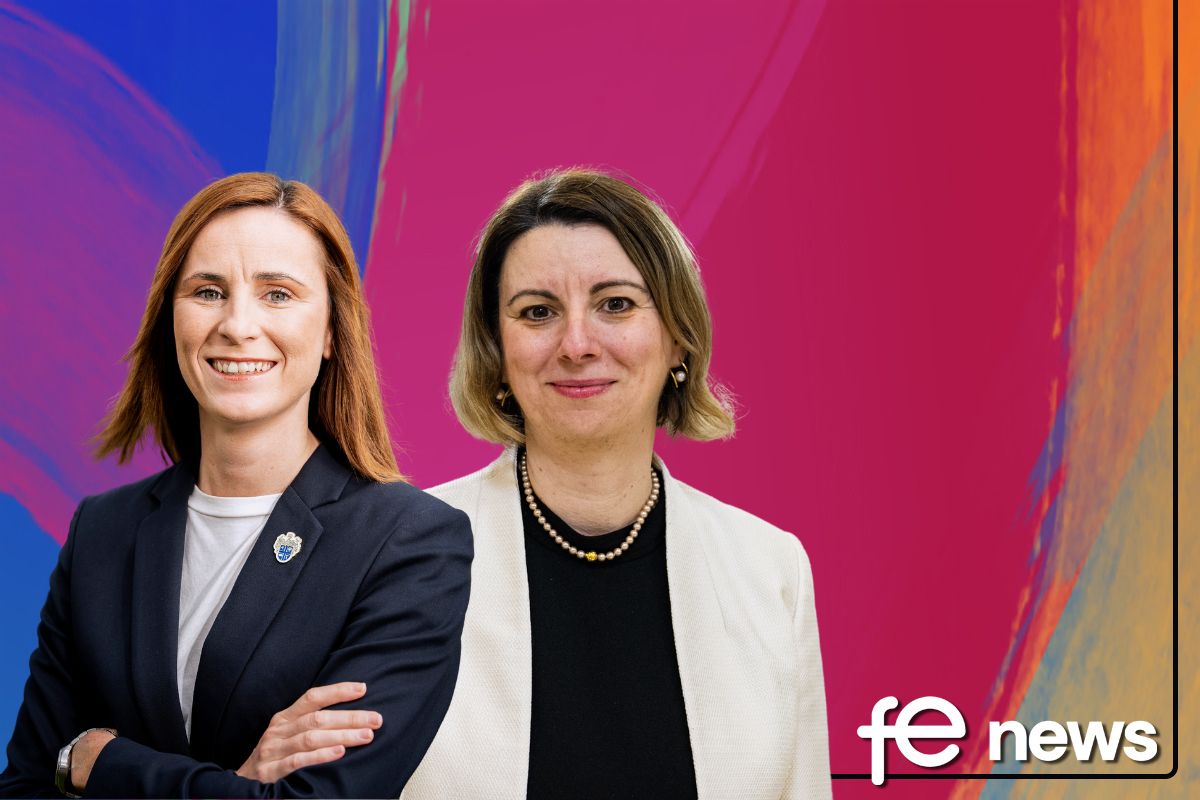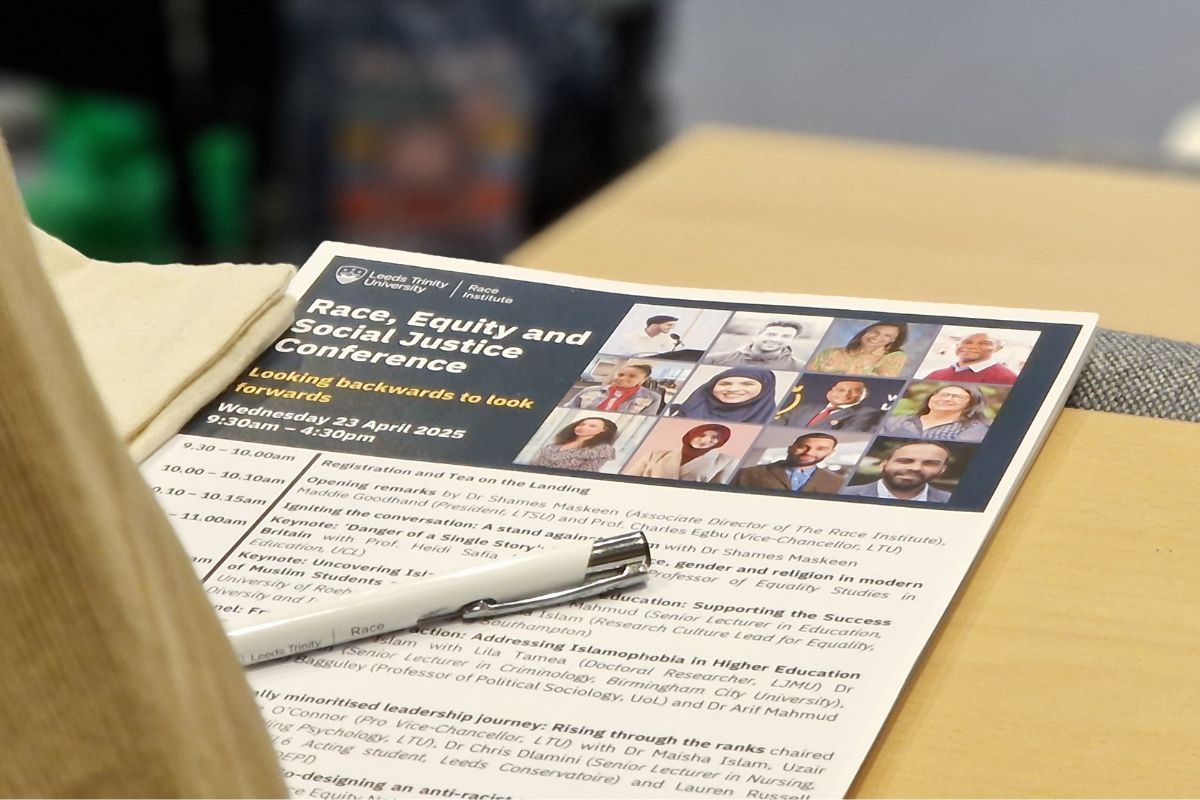Inclusive Leadership and Culture in the Further Education and Skills Sector: Inclusive Culture

We’re continuing our conversation with two successful leaders in the further education and skills sector who are passionate about inclusive leadership; Dr Katerina Kolyva, CEO of the Education and Training Foundation, and Professor Jo Maher, Principal and CEO at Loughborough College, and recently appointed as Loughborough University’s Pro Vice Chancellor for Sport. In the final part of our conversation, they discuss the role of leadership in creating an inclusive culture.
What can we do to champion a culture that celebrates diversity and supports equity, inclusion, and belonging within the sector?
JM: We’ve got to move beyond just championing it. It’s about the practical things that we are actually doing. At Loughborough College, we did some work with Investors In Diversity where we reflected and looked at the whole of the college, having some really authentic conversations at every level to assess where we were. Eighteen months later we obtained Investors In Diversity accreditation and we’re now looking at Leaders In Diversity. As a team we really felt we were moving forwards and making great progress. We looked at our policies, strategies, and initiatives right across the college. But it’s really about showing what you’re doing. For example, in our polices, being able to demonstrate here are five lessons in our curriculum that show how we’re being inclusive. You must be able to demonstrate how you’re creating a diverse, equal and inclusive culture throughout the whole organisation, otherwise championing becomes tokenistic.
KK: For me there is a clear distinction that all organisations and leaders need to make between being a mentor and being a sponsor. We often approach inclusive leadership in a mentoring kind of way. We might say “I know about inclusive leadership because I’ve read a lot about it, I’ve been inclusive before and I’m an inclusive person myself, therefore, this is what it looks like”. Whereas the sponsor approach would be to say, “actually I don’t know what it looks like, but as the sponsor I’ll create the environment for you to come and tell me”. This way is much more open and inclusive rather than saying to people “this is how you do it”. It’s about asking what it is you need from me as a sponsor to support you and make you feel included?
Inclusive leadership is not about an HR system or process, it’s a lot more than that.
It’s the outcomes you want to see across your organisation. In the case of the ETF a good inclusive outcome for us would be that all our programmes feel, are led by, and impact a diverse group of individuals. That the individuals who participate in our programmes feel those who support them, whether they are a trainer or part of the administration team, represent the communities and society that we serve.
There is a tendency to say “oh, it’s hard, I don’t know what to do”. But we need to push ourselves and ask people what they need, which is why the role of sponsor as opposed to mentor is important to me.
Unfortunately, there might still be unconscious bias or even microaggressions present within a further education and skills organisation. What are the best ways to address this, and engage with staff on subjects that may be hard to talk about or share?
JM: We talked earlier about creating a culture of trust and removing the outrage but not the rage. We’ve got to be able to have balanced, evidence based academic debates.
We’ve got to be able to listen to other people and we’ve got to learn and to try and have a growth mindset. It’s about that learning approach and mentality.
KK: I agree and it’s also about calling out the bad practices, exposing them and saying “do you realise what this is? do you understand the impact this has?” But trying to do it in a non-confrontational way.
JM: There’s a really great example recently in the Premier League; Aaron Ramsdale, the Arsenal goalkeeper, talked about how he’s not going to let microaggressions go anymore. His brother is gay, and he feels that he should have spoken out more over the years, so he’s now going to call out dressing room behaviour and fan behaviours that are unacceptable. He’s recently written a really passionate allyship article. So, we’re seeing shifts in areas like sport and will continue to do so as we see more role models and allies who are speaking out it in a really authentic way.
In your leadership experience, what has been a successful policy or activity you’ve implemented that helped achieve a more inclusive culture?
JM: Loughborough College and Loughborough University joined forces to become a global provider supporting American football’s global academy for the National Football League (NFL). We have sixty young men in the academy, from all over the world including those from low socioeconomic backgrounds. We have learners from countries including Zambia, Ghana and Nigeria, so predominantly Black Afro Caribbean. Shortly after their induction I caught up with them and they asked, “where do we get our haircut in town?”.
It then struck me – a lot of our learners coming to Loughborough are from Leicester City centre, Nottingham City centre, cities with established and thriving diverse communities. There’s between twenty-eight to thirty thousand students across Loughborough, with a lot of students from China and India. We are very rich in our Southeast Asian communities, but in terms of Black Afro Caribbean, it was clear we were lacking in understanding their needs. The American football academy students were honest with us, telling us we should do this, and asking us why we’re not doing that. It just doesn’t matter what you do, if you do not check in with your students and if they are not your voice, then you’re not where you need to be. Your students will tell you everything you need to know, and they will give it to you straight.
What is the most important thing to you about inclusivity in general?
JM: For me it’s how do we support people that are naturally introverts, to progress their talent as individuals without having to need these kinds of conversations, or having to rely on people who are natural extroverts. I put myself in the naturally extrovert and confident category, and I shouldn’t feel the need to say yes to these kinds of conversations and meetings to advocate for others. We should be creating environments where they’re naturally progressing their skills on an individual basis, because they can, and those barriers aren’t there. That’s when we’ll know we’re getting it right.
KK: When it’s no longer a task but it just happens naturally. You’ll be able to walk in the room and it’s just happening – when we don’t need to talk about it anymore. I think we’re far from that, but we can aspire to getting there, if we talk more about the impact and less about the process.
Finally, what is the most important thing to you about being a leader?
JM: For me it’s simply the impact you have on the community that you serve. If you’re not having an impact, then you shouldn’t be a leader.
KK: For me it’s the same, it’s the impact you have. Having a strategy to make an impact and a difference.
By Dr Katerina Kolyva, CEO of the Education and Training Foundation, and Professor Jo Maher, Principal and CEO at Loughborough College, and recently appointed as Loughborough University’s Pro Vice Chancellor for Sport
FE News on the go
Welcome to FE News on the go, the podcast that delivers exclusive articles from the world of further education straight to your ears.
We are experimenting with Artificial Intelligence to make our exclusive articles even more accessible while also automating the process for our team of project managers.
In each episode, our thought leaders and sector influencers will delve into the most pressing issues facing the FE.











Responses